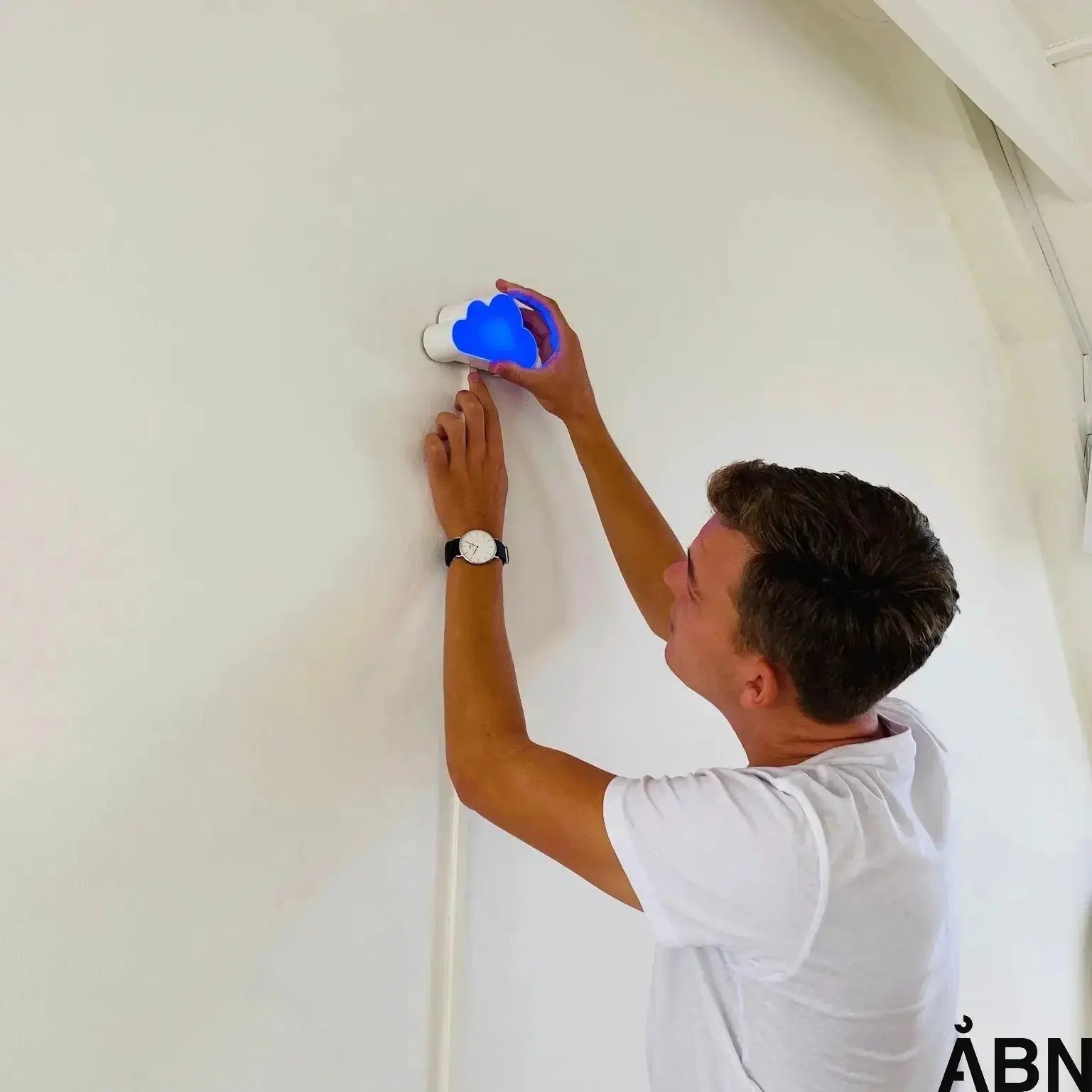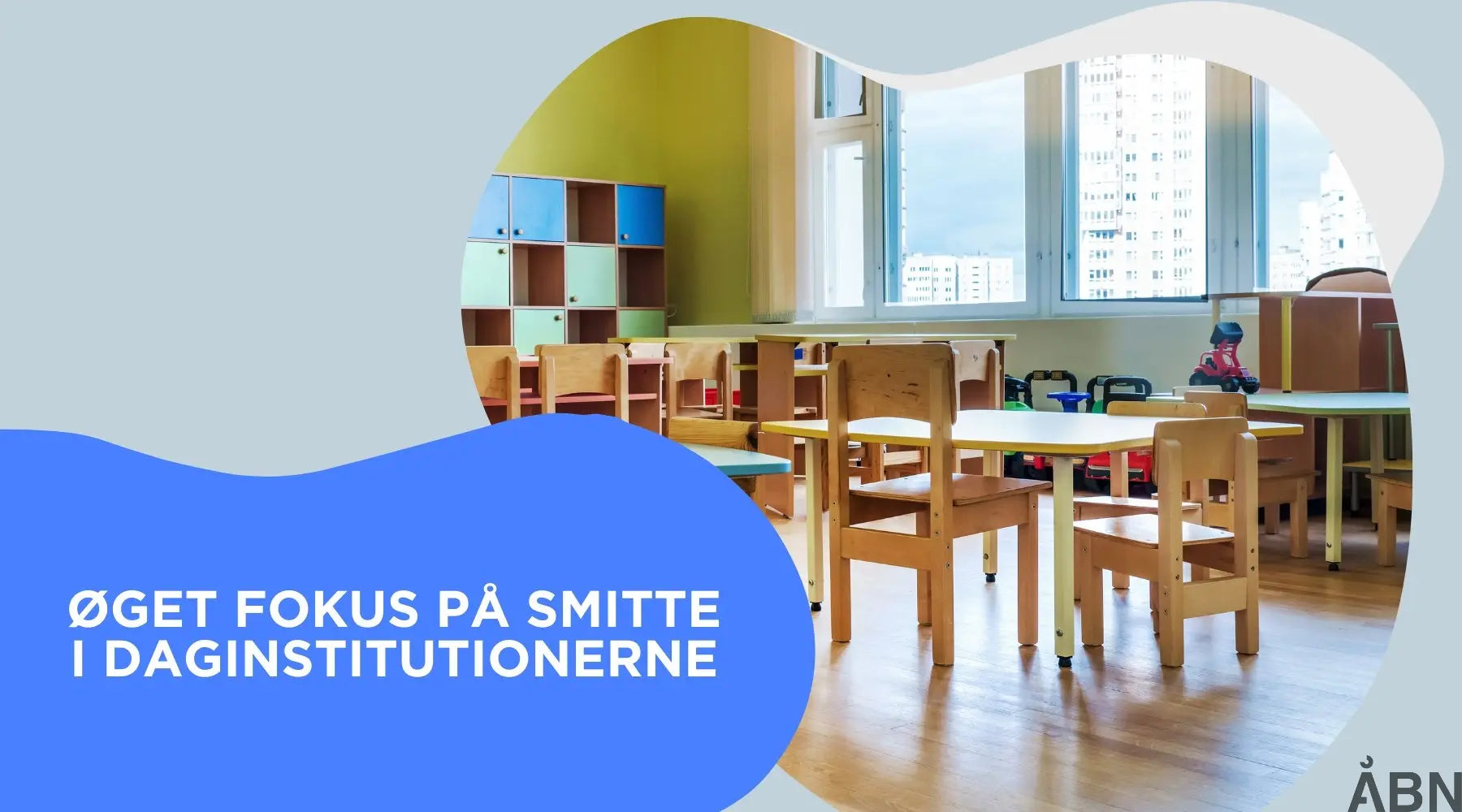In these times, when health and safety are in focus, it is crucial to understand how the indoor climate affects the spread of disease in daycare centers.
Two major projects on air quality
Both the Statens Serum Institut (SSI) and the National Research Center for the Working Environment (NFA) have taken the initiative to investigate exactly this.
NFA's project involves the use of air meters and anonymous postcards to collect data on CO2 levels and sickness absence, while SSI is initiating the pilot project "Healthy Indoor Climate in Schools" to optimize air quality in school classrooms and reduce the risk of infection.
NFA's Project: Air meters and postcards for better air quality in day care institutions
NFA has started a ground-breaking research project in collaboration with Gentofte Municipality and Dansk Miljøanalyse. The project aims to investigate whether better air quality can reduce disease outbreaks in day care institutions and thus reduce sickness absence among both children and staff.
The researchers use air meters in 22 institutions and collect data using anonymous postcards, where the staff register the reasons for their own and the children's absence. At the same time, they measure the CO2 content of the air to assess the effectiveness of ventilation and venting. By combining this data, the researchers seek to uncover the connection between infection and air quality in the institutions.
The project, supported by the Health Foundation and BUPL's Research Pool, involves almost 700 children and 200 employees and aims to create new knowledge about how ventilation and air quality can contribute to reducing sickness absence in day care institutions.
Read more about the project here
SSI's project: Healthy indoor climate in schools
The Statens Serum Institut has launched the pilot project "Healthy Indoor Climate in Schools" with support from Realdania. This project involves several schools from all over the country and aims to investigate technical solutions that can improve the air quality and indoor climate in classrooms. The goal is to increase well-being and reduce the risk of infection with respiratory infections.
The project evaluates 13 technologies for air purification based on criteria such as cleaning capacity, safety, costs and conditions of use. Three technical solutions have been selected for testing: mobile air purifiers with HEPA and activated carbon filters, nudging with feedback on air quality, and decentralized ventilation.
The experiences from the pilot project will form the basis for a larger intervention project with the overall goal of reducing the risk of respiratory infections and improving children's well-being through an improved indoor climate.
Get more information about the project here
These projects represent ground-breaking research and initiatives that address the importance of indoor climate for health and well-being in daycare centers and schools. The results from these projects can help shape future measures to create a healthier and safer environment for both children and staff.
Our own results with SKYEN as ventilation guide
We at ÅBN ApS have ourselves seen positive results from a focus on indoor climate in our projects around the country. In Vejle Municipality, significant improvements were experienced, where the proportion of staff who do not feel sick from going to work increased from 54% to 63%. An impressive step towards a healthier working environment. Read the case here.
In Halsnæs Municipality, SKYEN was mentioned as a positive initiative in the latest Workplace Assessment (APV). The employees report that they are less tired and have fewer headaches, and the psychological effect of the cloud has removed any doubt about the air quality – now they can just see if the cloud is red or blue. Read the entire article here.
The results from our own projects underline the importance of paying attention to the indoor climate. We have already helped 75 municipalities to create better indoor climate conditions, and we want to share this success with daycare managers across the country.
ÅBN calls for a better indoor climate in day care institutions
With our innovative solution, SKYEN , daycare managers can easily monitor CO2 levels and make effective decisions to optimize air quality. We understand that a healthy indoor climate is not only essential for health and well-being, but also for reducing the risk of infection.
We encourage daycare managers to take the next step towards a healthier daycare service. THE CLOUD is not just a technological solution; it is the way to a healthier and safer working environment for both children and staff.
Together we create a healthier day service.









